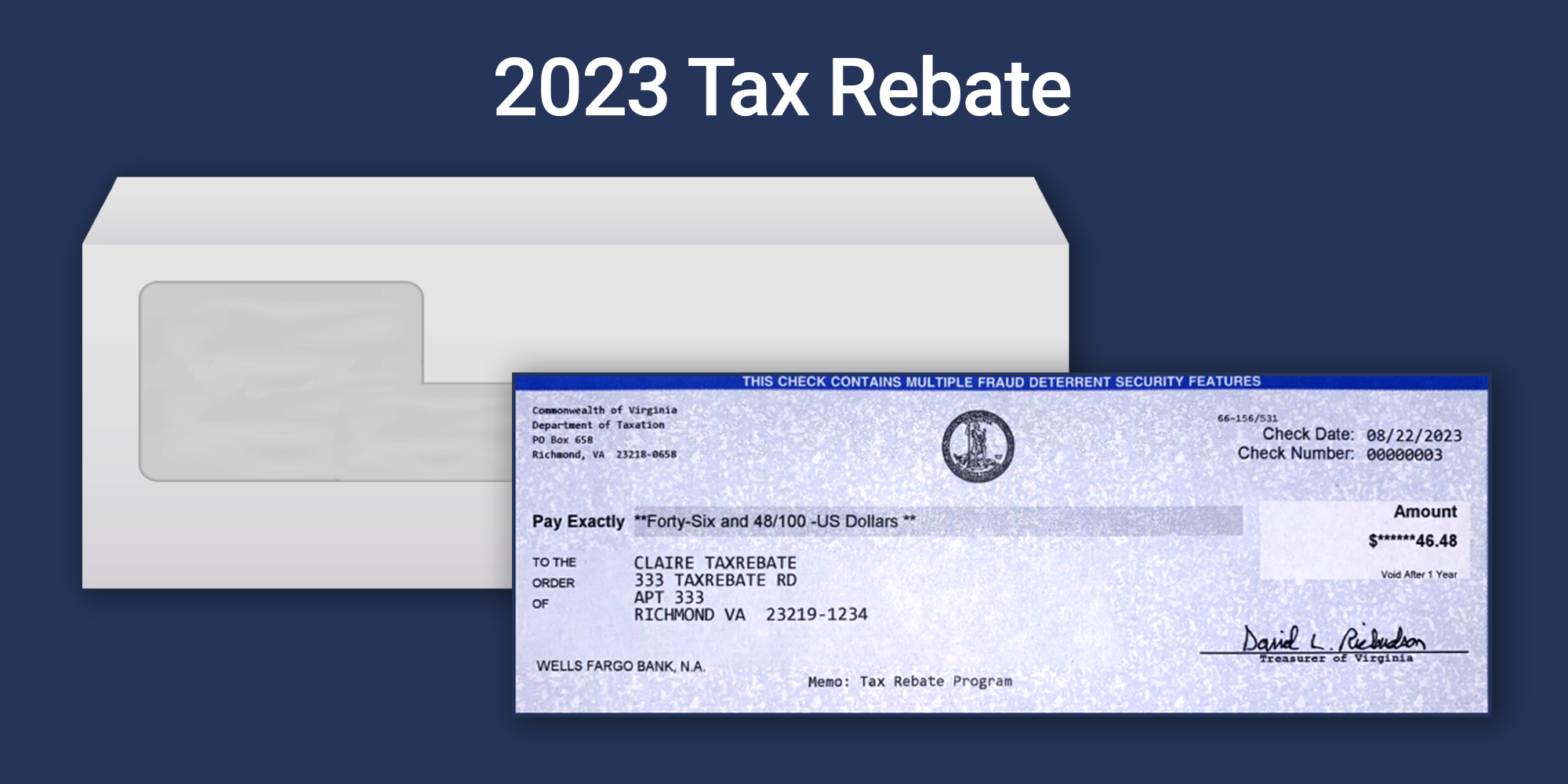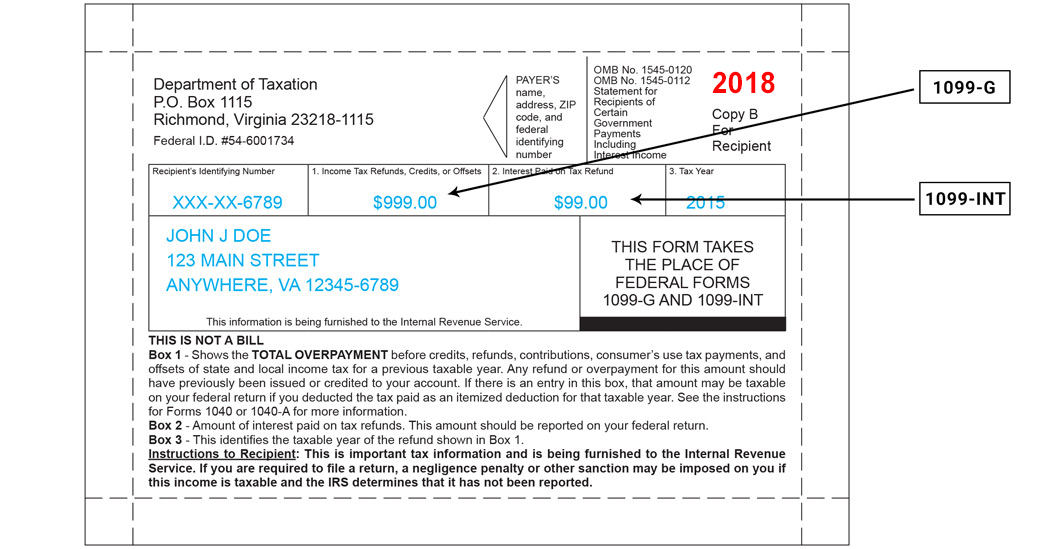Understanding Virginia Dept Of Taxation: A Comprehensive Guide
Virginia Dept of Taxation is a vital state agency responsible for administering tax laws and ensuring compliance within the Commonwealth of Virginia. Whether you're a resident, business owner, or simply interested in understanding the intricacies of the state's tax system, this article will provide you with a detailed overview. In this guide, we will explore the various functions, responsibilities, and resources offered by the Virginia Department of Taxation to help you navigate the complexities of state taxation effectively.
The Virginia Department of Taxation plays a crucial role in shaping the financial landscape of the state. As a taxpayer, it is essential to understand how this agency operates and the impact it has on your financial obligations. This article aims to demystify the workings of the department, empowering you with the knowledge to make informed decisions regarding your taxes.
From individual income taxes to sales and use taxes, the Virginia Dept of Taxation oversees a wide range of tax-related activities. By delving into the specifics of its operations, we will equip you with the tools needed to stay compliant and take advantage of available resources. Let's begin our journey into the world of Virginia's tax administration.
Read also:Airsoft Rangers The Ultimate Guide To Joining The Elite Squad
Table of Contents
- Introduction to Virginia Dept of Taxation
- Key Functions and Responsibilities
- Individual Income Taxes
- Business Taxes
- Sales and Use Taxes
- Property Taxes
- Filing Process and Deadlines
- Resources and Support
- Appeals Process
- Future Trends in Taxation
- Conclusion
Introduction to Virginia Dept of Taxation
The Virginia Department of Taxation is an integral part of the state government, tasked with the administration of tax laws and policies. Established to ensure fair and efficient tax collection, the department plays a pivotal role in funding essential public services and infrastructure. Its mission is to provide excellent customer service while maintaining the integrity of the state's tax system.
With a focus on transparency and accountability, the Virginia Dept of Taxation strives to educate taxpayers about their rights and responsibilities. By offering a variety of resources, the department aims to simplify the tax filing process and promote compliance. Understanding the foundational principles of this agency is the first step in navigating the complexities of Virginia's tax landscape.
Key Functions and Responsibilities
The Virginia Dept of Taxation performs several critical functions that directly affect taxpayers. Below are some of the primary responsibilities of the department:
Revenue Collection
One of the main functions of the department is the collection of state taxes. This includes individual income taxes, corporate taxes, sales and use taxes, and other revenue-generating activities. Efficient revenue collection ensures that the state has the necessary funds to support public services and infrastructure development.
Taxpayer Assistance
The department offers a range of services to assist taxpayers in understanding and fulfilling their tax obligations. This includes providing educational materials, answering inquiries, and offering guidance on complex tax issues. Taxpayer assistance is a cornerstone of the department's commitment to fostering a compliant and informed public.
Enforcement
To maintain the integrity of the tax system, the Virginia Dept of Taxation enforces tax laws and regulations. This involves auditing, investigating, and resolving disputes related to tax compliance. Through effective enforcement, the department ensures that all taxpayers contribute their fair share to the state's revenue pool.
Read also:Mask Dybala Unveiling The Mystery Behind The Iconic Persona
Individual Income Taxes
Individual income taxes are a significant source of revenue for the Commonwealth of Virginia. The Virginia Dept of Taxation administers these taxes by setting rates, determining exemptions, and providing guidance on deductions. Below are some key aspects of individual income taxes in Virginia:
Filing Requirements
Residents of Virginia are required to file state income tax returns if they meet certain income thresholds. The department provides clear guidelines on who must file and the necessary documentation to submit. Ensuring compliance with these requirements is crucial to avoid penalties and interest.
Tax Rates
Virginia operates a progressive tax system, with rates increasing as income levels rise. The Virginia Dept of Taxation regularly updates these rates to reflect changes in the state's fiscal policies. Understanding the applicable tax rates is essential for accurate tax planning and filing.
Deductions and Credits
Taxpayers can take advantage of various deductions and credits offered by the Virginia Dept of Taxation. These include standard deductions, itemized deductions, and credits for education, dependents, and other qualifying expenses. Maximizing these benefits can significantly reduce your tax liability.
Business Taxes
Businesses operating in Virginia are subject to various taxes administered by the Virginia Dept of Taxation. These taxes include corporate income taxes, franchise taxes, and other business-related levies. Below are some key considerations for businesses in Virginia:
Corporate Income Taxes
Corporations conducting business in Virginia must pay state income taxes on their profits. The Virginia Dept of Taxation sets the rates and provides guidance on calculating taxable income. Compliance with these regulations is essential for businesses to avoid legal and financial repercussions.
Franchise Taxes
In addition to income taxes, businesses may be subject to franchise taxes based on their capital structure. The Virginia Dept of Taxation outlines the requirements for these taxes and offers resources to help businesses navigate the filing process. Understanding franchise taxes is crucial for maintaining compliance and optimizing financial performance.
Other Business Taxes
Businesses may also be required to pay other taxes, such as excise taxes, employment taxes, and environmental taxes. The Virginia Dept of Taxation provides detailed information on these taxes and their application. Staying informed about these obligations is vital for effective business management.
Sales and Use Taxes
Sales and use taxes are a significant revenue source for the state of Virginia. The Virginia Dept of Taxation administers these taxes by setting rates, defining taxable items, and providing guidance on exemptions. Below are some key aspects of sales and use taxes in Virginia:
Tax Rates
The standard sales tax rate in Virginia is 6%, with additional local taxes applied in certain jurisdictions. The Virginia Dept of Taxation regularly updates these rates to reflect changes in the state's fiscal policies. Understanding the applicable tax rates is essential for accurate tax calculation and compliance.
Taxable Items
Not all goods and services are subject to sales tax in Virginia. The Virginia Dept of Taxation provides a comprehensive list of taxable items and services to help businesses and consumers determine their tax obligations. Familiarizing yourself with this list can prevent unnecessary tax payments and ensure compliance.
Exemptions
Certain items and services are exempt from sales tax in Virginia, such as groceries and prescription medications. The Virginia Dept of Taxation outlines these exemptions and provides guidance on claiming them. Taking advantage of these exemptions can result in significant savings for both businesses and consumers.
Property Taxes
Property taxes are a critical component of local government funding in Virginia. The Virginia Dept of Taxation works closely with local jurisdictions to administer these taxes and ensure compliance. Below are some key aspects of property taxes in Virginia:
Assessment Process
Property taxes are based on the assessed value of real estate, which is determined by local assessors. The Virginia Dept of Taxation provides guidance on the assessment process and offers resources to help property owners understand their tax obligations. Ensuring accurate assessments is essential for fair and equitable taxation.
Tax Rates
Property tax rates vary by locality in Virginia, with each jurisdiction setting its own rates based on budgetary needs. The Virginia Dept of Taxation provides information on these rates and offers resources to help property owners calculate their tax liabilities. Understanding the applicable rates is crucial for effective tax planning and budgeting.
Appeals Process
Property owners who disagree with their assessments can file appeals through the Virginia Dept of Taxation. The department outlines the steps for filing an appeal and provides guidance on presenting a case. Utilizing this process can result in reduced tax liabilities for property owners.
Filing Process and Deadlines
Filing taxes with the Virginia Dept of Taxation involves several steps and deadlines that taxpayers must adhere to. Below are some key considerations for the filing process:
Electronic Filing
The Virginia Dept of Taxation encourages taxpayers to file electronically, offering a secure and efficient method for submitting returns. Electronic filing reduces processing times and minimizes errors, making it a preferred option for many taxpayers. Understanding the electronic filing process can streamline your tax obligations.
Deadlines
Taxpayers must meet specific deadlines for filing their returns and paying any taxes owed. The Virginia Dept of Taxation provides clear guidelines on these deadlines and offers extensions for those who need additional time. Staying aware of these deadlines is crucial for avoiding penalties and interest.
Payment Options
The Virginia Dept of Taxation offers several payment options for taxpayers, including electronic payments, checks, and money orders. Choosing the most convenient option can simplify the payment process and ensure timely submission of taxes owed.
Resources and Support
The Virginia Dept of Taxation provides a wealth of resources to assist taxpayers in understanding and fulfilling their obligations. Below are some key resources available:
- Online Taxpayer Portal: Access your account information, view tax history, and make payments securely.
- Taxpayer Guides: Comprehensive guides covering various tax topics, including individual and business taxes.
- FAQ Section: Answers to common questions about tax laws, filing procedures, and compliance requirements.
- Customer Service: Contact information for the department's customer service team, available to assist with inquiries and concerns.
Appeals Process
Taxpayers who disagree with decisions made by the Virginia Dept of Taxation can file appeals. The department provides a structured process for filing appeals, ensuring fair and impartial review of cases. Below are some key steps in the appeals process:
Filing an Appeal
Taxpayers must submit a formal appeal request, outlining the reasons for disagreement and providing supporting documentation. The Virginia Dept of Taxation reviews these requests and determines the next steps in the process. Understanding the requirements for filing an appeal can improve your chances of success.
Hearing Process
Appeals may proceed to a hearing, where taxpayers can present their case before an impartial panel. The Virginia Dept of Taxation provides guidance on preparing for hearings and presenting evidence effectively. Participating in this process can lead to favorable outcomes for taxpayers.
Resolution
Once the appeal process is complete, the Virginia Dept of Taxation issues a final decision. Taxpayers have the option to accept this decision or pursue further legal action if necessary. Resolving disputes through the appeals process can result in fair and equitable outcomes for all parties involved.
Future Trends in Taxation
The field of taxation is continually evolving, with new technologies and policies shaping the landscape. The Virginia Dept of Taxation remains committed to adapting to these changes and ensuring effective administration of tax laws. Below are some future trends to watch:
- Increased Use of Technology: The department continues to enhance its digital platforms, offering more online services and tools for taxpayers.
- Focus on Sustainability: As environmental concerns grow, the department may introduce new taxes and incentives to promote sustainable practices.
- Global Tax Reforms: Changes in international tax laws could impact Virginia's tax policies, requiring adjustments to maintain competitiveness and fairness.
Conclusion
In conclusion, the Virginia Dept of Taxation plays a vital role in administering tax laws and ensuring compliance within the Commonwealth of Virginia. By understanding its functions, responsibilities, and resources, taxpayers can navigate the complexities of state taxation more effectively. This article has provided a comprehensive overview of the department's operations, highlighting key aspects of individual and business taxes, sales and use taxes, property taxes, and more.
We encourage you to take action by exploring the resources offered by the Virginia Dept of Taxation and staying informed about changes in tax laws and policies. If you found this article helpful, please share it with others and consider reading more articles on our site for additional insights into taxation and finance. Your feedback and engagement are valuable in helping us improve and expand our content.


